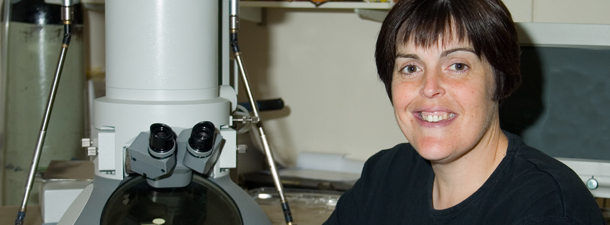Innovative technology being pioneered in Wales to speed up the discovery of new drugs to tackle lung diseases could also dramatically reduce testing on animals.
Scientists at Cardiff University’s School of Biosciences have shown it is feasible to integrate human liver cells with lung cells to create the Metabo-Lung – a working model of human lung tissue to test the toxicity of drugs.
Liver cells are a necessary part of the culture as they break down or bio-transform drugs into active components that act differently from the original drug. It is these elements that need to be tested.
Scientists say that Metabo-Lung has the potential to improve current methods of testing for drug toxicity by identifying the most suitable drug candidates early in the screening process. Early identification of toxic effects would allow huge cost savings and significantly reduce the need for animal testing.
Also, traditionally testing is carried out using single cells or on animals, both of which have limitations. Finding alternatives to animals in testing drug safety is a major focus for the life sciences sector.
The development work now under way at Cardiff University could offer a genuine alternative to animal testing for pharmaceutical companies developing new drugs for pulmonary disorders such as asthma, chronic obstructive pulmonary disease and cystic fibrosis.
Once the technology is fully validated, the aim is either to licence the product or offer a commercial service testing drug toxicity for pharmaceutical companies.
The project is supported by £138,300 from the Welsh Government’s Academic Expertise for Business (A4B) programme, an EU funded initiative designed to encourage collaboration between academia and industry and to commercialise research.
Edwina Hart, Minister for Business, Enterprise, Technology and Science, said A4B funding was playing a critical role in supporting the development of innovative and valuable technologies.
“Wales is an important player in the life science sectors and I am pleased the Welsh Government is able to support some of these significant advances that have the potential to create health benefits and support economic growth.”
Dr Kelly BéruBé, Project Director, said: “The exciting potential of Metabo-Lung is already creating significant interest from major pharmaceutical companies.
“There is no fully integrated bio-transforming model on the market for toxicity testing which is why our work on the Metabo-Lung project is being watched with considerable interest.”




















